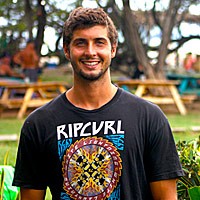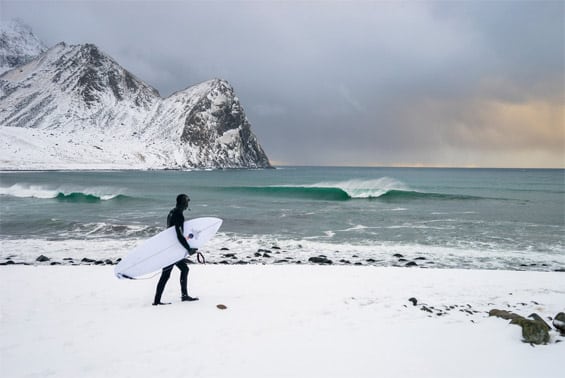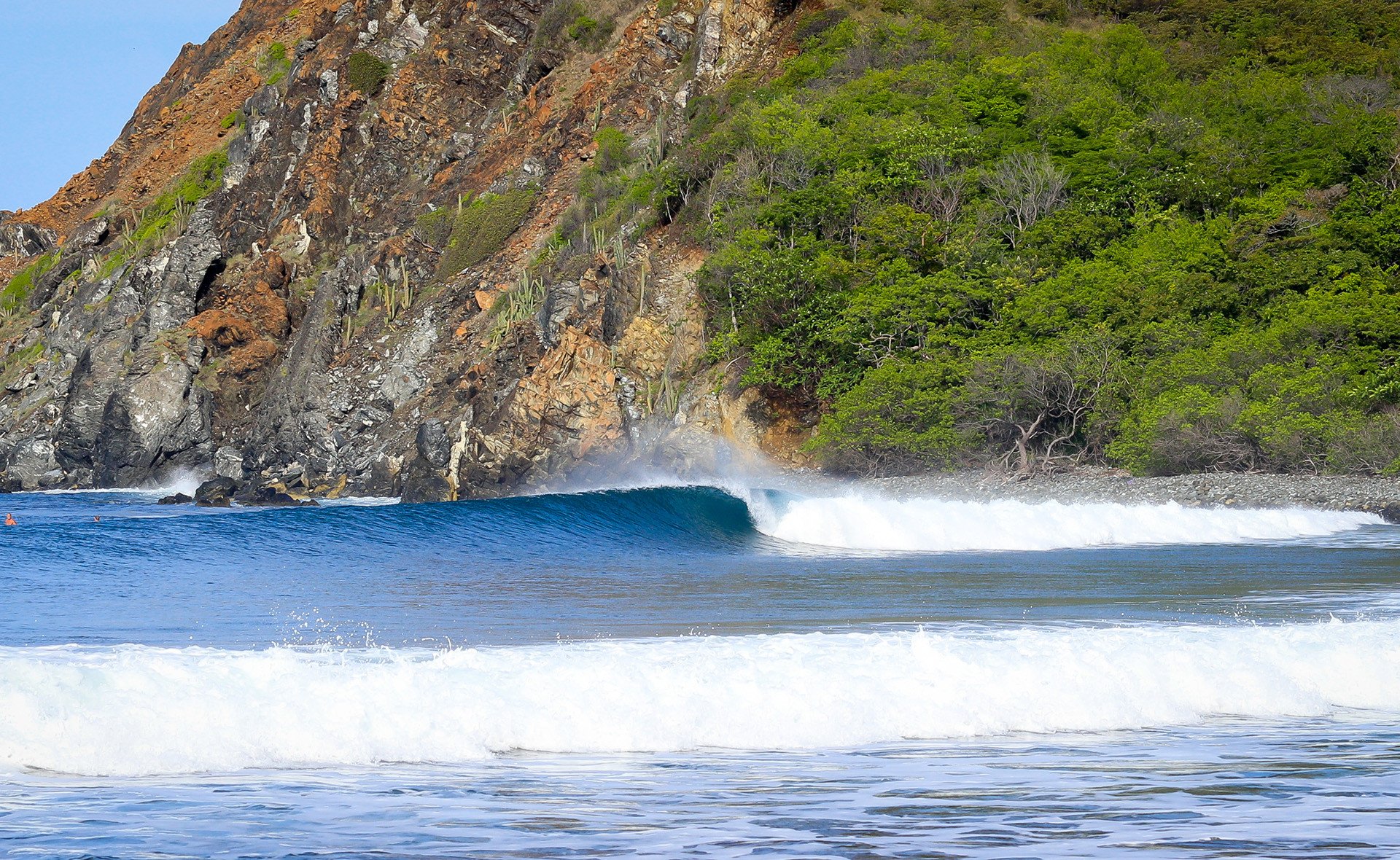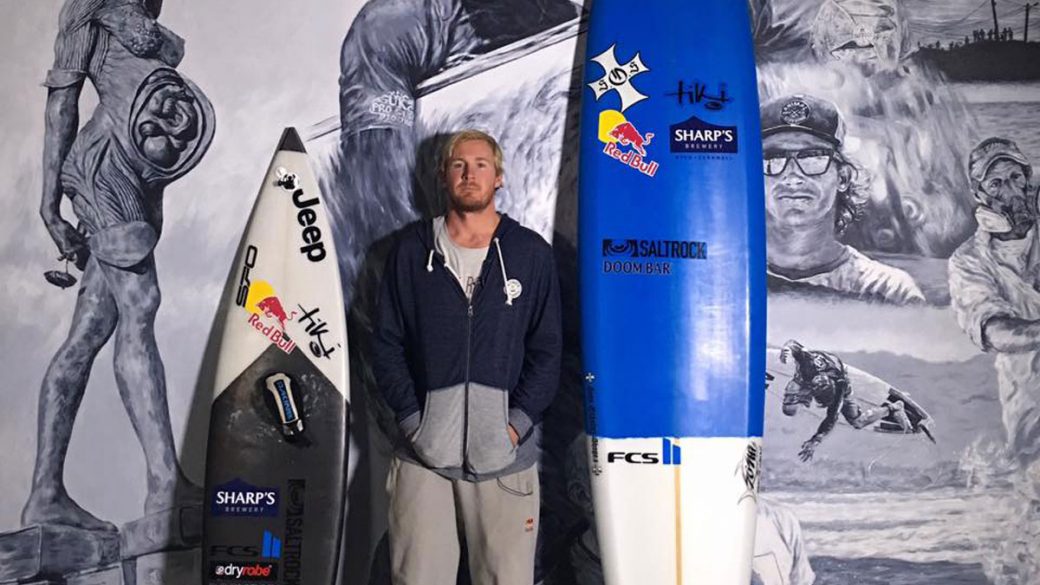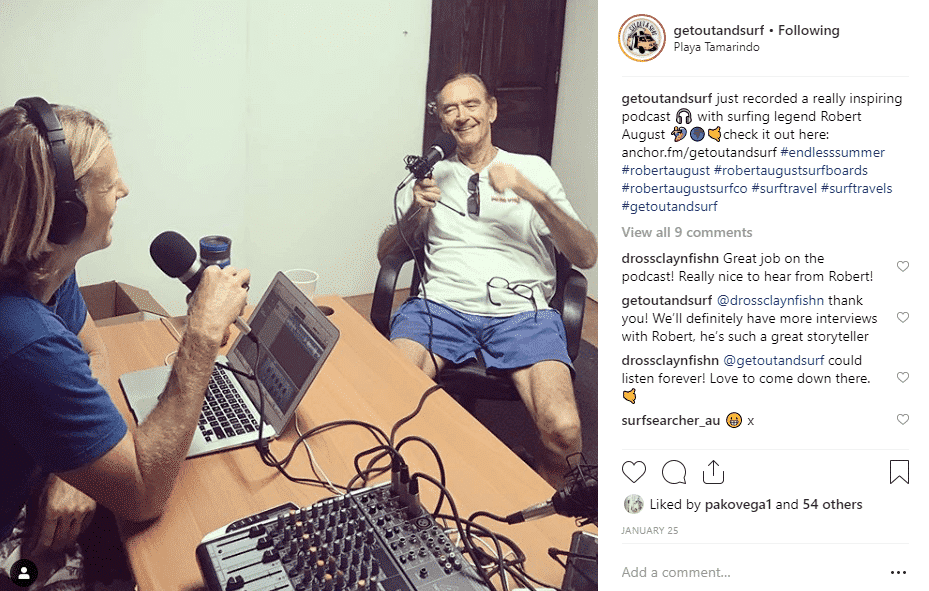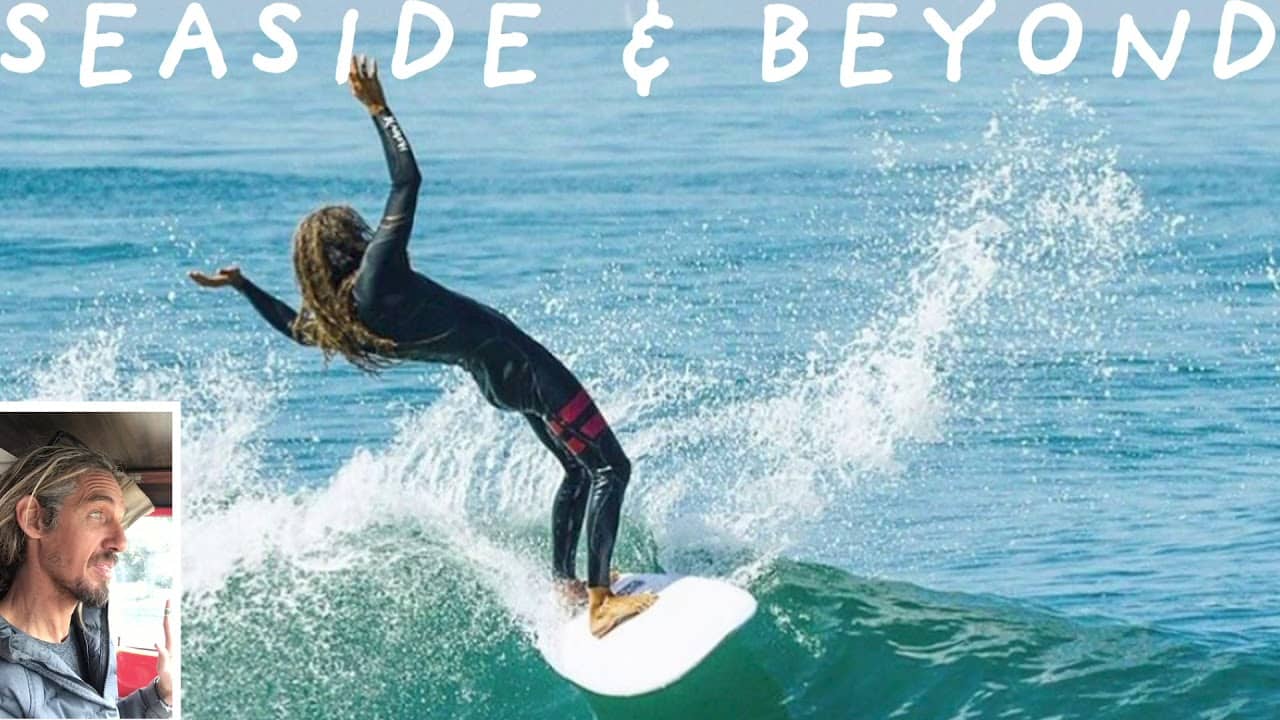The ongoing theme of this column has mostly focused on the science surrounding wave mechanics, surf-forecasting, meteorology, etc. This month, I’ve decided to take a small hiatus from this theme and focus on a more cerebral topic with its roots grounded in psychology; The Science of Stoke!
What keeps us paddling back out? While sunbathers, frisbee throwers, and margarita drinkers prefer their view from the sand, surfers face whatever elements Mother Nature can throw at them for the yearned-after reward of (in the words or Spicolli) a few tasty waves. Here in the year-round paradise of Costa Rica, surfers have it fairly easy when it comes to harsh conditions. The most we deal with is a little “cold” water caused by upwelling and the stiff papagayo winds. Many of those who were fortunate to grew up here can’t imagine embracing a 5 millimeter wetsuit, booties, gloves, and hood to chase mediocre waves in (almost) freezing water. But trust me, as a former wave-starved surfer from Virginia Beach, I have chased the Stoke through some pretty unfriendly conditions.
Surfers can be a bit obsessive..We call out of work, blow off plans, and even make major life decisions based around catching our next wave. So this begs the question….What is it about riding waves that brings us back time and time again? Or more simply put, Why does surfing make us happy?
In a relatively new branch of Psychology (known as Positive Psychology) researchers use a scientific approach to understand the day-to-day qualities that aid to a better-than-normal life. Psychologists are now finding that feelings of general happiness coincide with instances of “Flow” in everyday life. As defined, Flow is “An almost automatic, effortless, yet highly focused state of consciousness that we can experience when devoting ourselves to a meaningful challenge.” It can occur spontaneously in daily life when playing music, exercising, writing, painting, or surfing—basically, any activity that requires our highly focussed, undivided attention. Effectively, entering the Flow dissolves a part of our personal identity.
From a neurological perspective, entering The Flow makes more sense. Human brains can only process a certain amount of informational bits per second. So when we are 100% consumed in an exterior activity (like riding challenging waves that require our full attention) we lose our identity, and the awareness of our own existence is temporarily suspended. The mind and body are no longer separate entities; we read and ride in perfect synchronicity without thinking. By merging our intention with the wave; we experience a deep enjoyment and involvement with life.
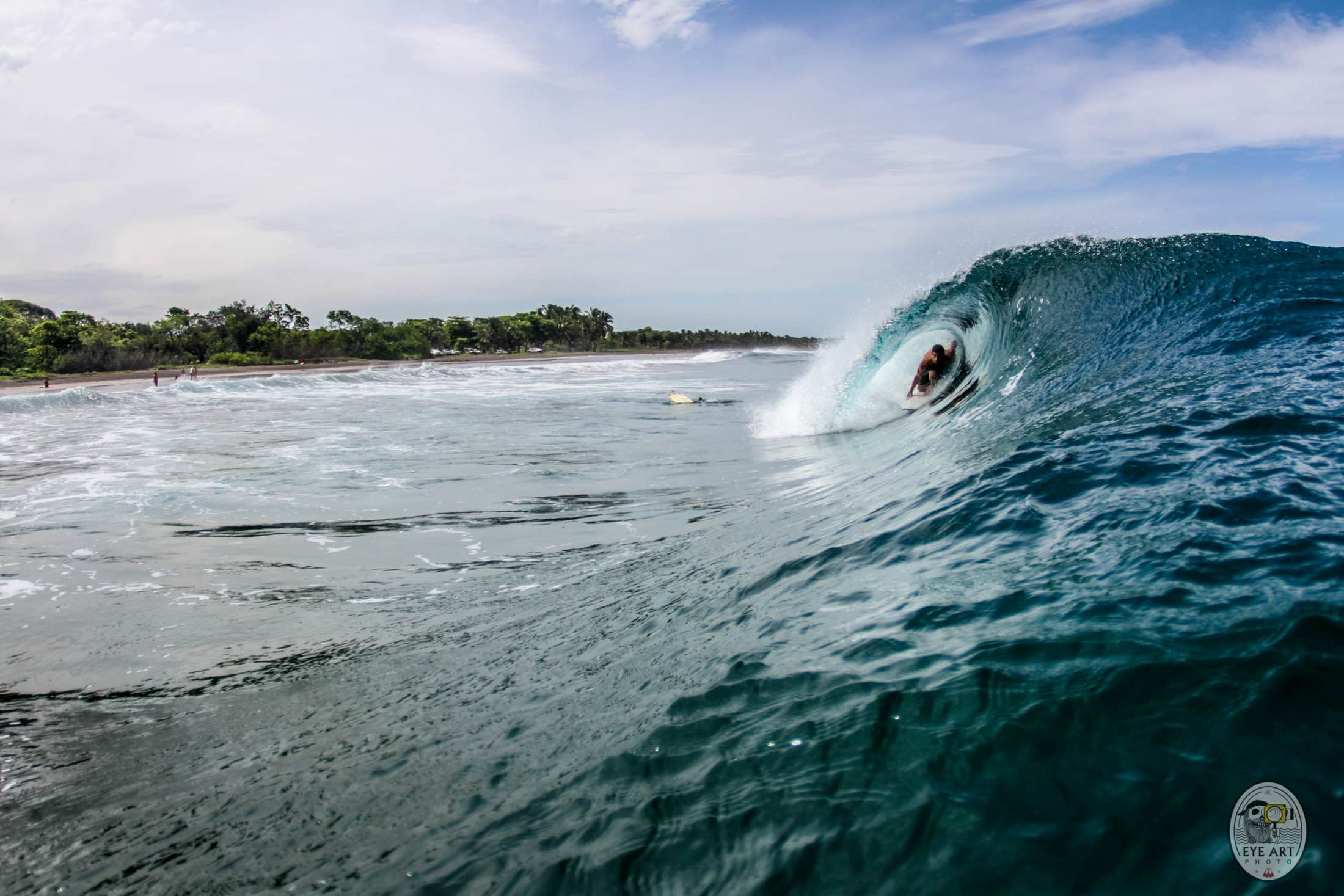
A musical composers once described being in the Flow as “You are in an ecstatic state to such a point that you feel as though you almost don’t exist. I have experienced this time and again. My hands seem devoid of myself, and I have nothing to do with what is happening. I just sit there watching it in a state of awe and wonderment. And the music just flows on itself”
Although we may be able to “lose” ourselves when watching TV, washing dishes, or casually driving a car, neither the challenge at hand nor the required skill level are high enough to induce real Flow. The presented challenge must demand a heightened level of focus and skill, as there is with riding waves. In my experience, very few moments in life rival the timeless thrill of riding through a perfect tube or racing down an avalanche of water.. We lose our exterior identity to find our inner-nature in a transcendental sense. We escape our ordinary routines and clouded minds (if only for a few seconds) to arrive in a more blissful, pure existence where everything makes sense. It’s a feeling all surfers know; it’s what keeps us paddling back out time and time again, rain or shine, searching for that perfect wave. These are the moments when time stands still, life’s problems disappear, our mundane lives don’t seem to matter, and for just a few instances, we are totally in the flow; we are happy.
In his book, Flow: The Psychology of Optimal Experience, Mihalyi Csikszentmihalyi outlines what it feels like to be in the flow. (Sounds a whole lot like surfing!)
-Completely involved in what we are doing—focused, concentrated.
-A sense of ecstasy—being outside of everyday reality (ex-static)
-Great inner clarity—Knowing what needs to be done, and how well we are doing.
-Knowing that the clarity is doable—that our skills are adequate to the task
-A sense of serenity—no worries about oneself, and a feeling of growing beyond the boundaries of the ego.
-Timelessness—thoroughly focused and present, hours seem to pass by in minutes
-Intrinsic motivation—whatever produces flow becomes its own reward
-You know exactly what you need to do from one moment to the other. Work is done for its own sake.
So remember this article next time you’re out in the water.. Everyone’s out there looking to enrich their lives with a little more happiness with each wave. Enjoy the ride, and keep a smile on your face :)
See you out in the water!
Ryan Waldron
Sources
Csikszentmihalyi, Mihaly. Flow: The Psychology of Optimal Experience. New York: Harper & Row, 1990. Print.

